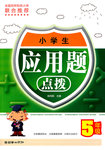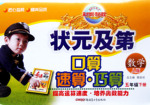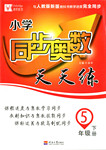题目内容
【题目】Obviously television has both advantages and disadvantages.
In the first place, television is not only a convenient source of entertainment, but also a very cheap one. With a TV set in the family people don’t have to pay for expensive seats at the theatre, the cinema, or the opera .All they have to do is to push a button or turn a knob, and they can see plays, films, operas and shows of every kind. Some people, however, think that this is where the danger lies. The television viewers need do nothing. He does not even have to use his legs if he has a remote control. He makes no choice and exercises, no judgment. He is completely passive and has everything presented to him without any effort in his part.
Television, it is often said, keeps one informed about current events and the latest developments in science and politics. The most distant countries and the strangest customs are brought right into one’s sitting room. It could be argued that the radio performs this service as well; but on television everything is much more living, much more real. Yet here again there is a danger. The television screen itself has a terrible, almost physical charm for us. We get so used to looking at the movements on it ,so dependent on its pictures, that it begins to control our lives. People are often heard to say that their television sets have broken down and that they have suddenly found that they have far more time to do things and that they have actually begin to talk to each other again. It makes one think, doesn’t it?
There are many other arguments for and against television. We must realize that television itself is neither good nor bad. It is the uses that it is put to that determine its value to society.
【1】What is the major function of paragraph 1?
A. To cause the reader’s discussion
B. To introduce the theme of the whole passage
C. To summarize the whole passage
D. To tell the primary uses of TV
【2】Television, as a source of entertainment, is ______.
A. not very convenient B. very expensive
C. quite dangerous D. very cheap
【3】Why are some people against TV?
A. Because TV programs are not interesting.
B. Because TV viewers are totally passive.
C. Because TV prices are very high.
D. Because TV has both advantages and disadvantages.
【4】One of the most obvious advantages of TV is that ______.
A. it keeps us informed
B. it is very cheap
C. it enables us to have a rest
D. it controls our lives
【5】According to the passage, whether TV is good or not depends on _______ .
A. its quality B. people’s attitude towards it
C. how we use it D. when we use it
【答案】
【1】B
【2】D
【3】B
【4】A
【5】C
【解析】
试题分析:本文向我们具体介绍了电视的好处与坏处,电视的好处在于它是一种既方便又便宜的娱乐资源,而且能够让我们足不出户,便知天下事。而它的坏处在于它的屏幕对人们身体有伤害,对健康不利;同时它使得人们变得消极被动,占用了人们的时间,控制了人们的生活。但文章最后指出,电视本身并没有好坏之分,它对社会的价值在于我们使用它的方式。
【1】概括分析题。第一段” Obviously television has both advantages and disadvantages.”意思是很明显,电视有它的好处和坏处。而本文正是围绕这句话展开讨论的,是全文的中心句。故选B。
【2】细节理解题。第二段中说” television is not only a convenient source of entertainment, but also a very cheap one.”电视不但是一种方便的娱乐资源,而且也非常便宜。故选D。
【3】细节理解题。第二段的最后一句说” He is completely passive and has everything presented to him without any effort in his part.”看电视的人完全是被动的,他不用做任何努力所有事情就呈现在他的面前。其中选项D “Because TV has both advantages and disadvantages.”不能说人们反对电视的理由是电视既有好处也有坏处。故选B。
【4】推理分析题。文中没有直接说电视带给我们的最明显的好处是什么,但仔细分析选项即可得出。A. it keeps us informed,在文中第三段有提到” Television, it is often said, keeps one informed about current events and the latest developments in science and politics.” 选项B. it is very cheap,在文中的第二段的第一句也有提到” television is not only a convenient source of entertainment, but also a very cheap one.”选项C it enables us to have a rest文章中没有提到,选项D. it controls our lives讲的是坏处,不是好处。排除C、D,分析A、B。很多东西都可以是很便宜的,但不是所有东西都可以随时向我们报告时事新闻和科学、政治的最新发展。故选A。
【5】细节理解题。文中最后一句说” We must realize that television itself is neither good nor bad. It is the uses that it is put to that determine its value to society.”我们必须认识到电视本身没有好坏之分,而是如何使用它,决定了它在社会中的价值。故选C.

 应用题点拨系列答案
应用题点拨系列答案 状元及第系列答案
状元及第系列答案 同步奥数系列答案
同步奥数系列答案